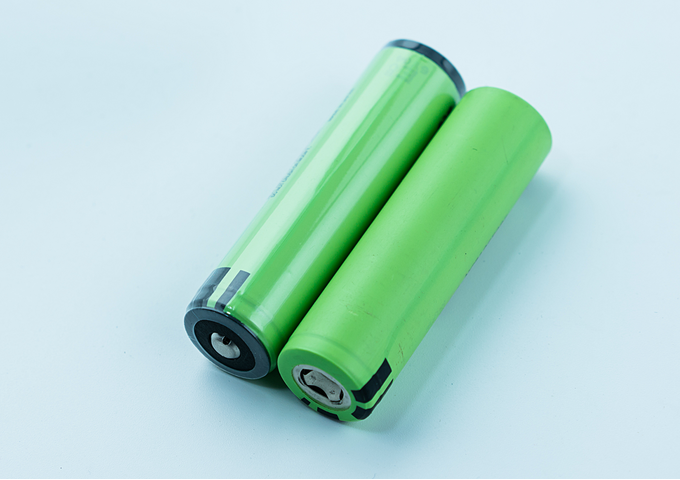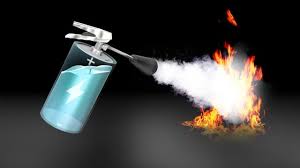Lithium Battery Waste Disposal – Recycling Solution
Nov 21, 2019 Pageview:1089
Lithium batteries are usually used to supply power in conventional electronic devices manufactured for human consumption. While lithium-ion batteries may be rechargeable, lithium-based cells are not. However, during disposal, both battery packs can be recycled but are considered to contain toxic materials and hence should not be thrown into the regular trash. There are many ways of disposing of lithium batteries, but one has to consider following the necessary directions to do so in the proper and recommended manner.
Can you scrap lithium batteries?
Yes, lithium batteries can be scrapped or recycled. However, unlike other scrapped materials, these batteries cannot be dumped in the typical blue recycling bin located on every corner of the street. The cells require precaution to be taken when recycling because the contents in them are toxic and can be harmful to the environment if disposed of improperly.
The lithium in lithium-based cells is highly reactive, and the electrolyte used in the manufacture of such batteries is highly flammable. The contents are also pressurized, which could force them to explode when subjected to threatening conditions. The danger increases when these cells end up in the back of a garbage disposal truck or dry recycling truck surrounded by flammable materials. The pressure or heat inside such vehicles could cause the cells to leak and spark thus starting fires.
On the other hand, the contents in lithium-ion batteries might be less toxic, but that doesn’t mean they don’t pose as a threat to the safety of the environment. Statistics suggest that fires that start at the back of recycling trucks are mostly started by lithium cells, including lithium-ion ones.
How do you dispose of lithium battery waste?
Lithium batteries are classified as non-hazardous batteries in many regions. This means that they are capable of being recycled, so it is possible to dispose of the cells in the right way and at the correct location. To contribute to a greener earth, knowing how to dispose of lithium batteries in the right way is a priority. Here are the necessary steps one should take:
1.Keep the batteries away from the regular recycling bin.
2.Tape the ends of the cells using clear tape to prevent leaking or sparking.
3.As an alternative, you can place the batteries in a plastic bag after taping, separately.
4.When storing, use a vented plastic container or cardboard box.
5.Keep the cells separate from other battery types.
6.Please search for a store that collects the batteries of recycles them.
7.Take them to a waste center near you.
The right time to recycle your lithium batteries
You can check on the right time for recycling your lithium batteries from the manual that comes with every purchase of a battery pack. As much as these batteries last longer than their predecessor types, they, like every other electrical invention, have their expiry period. The right time to which you need to recycle your lithium batteries is never constant and poses itself based on several factors. Heat, for example, and especially extreme temperature conditions, tend to deteriorate the quality of these cells hence reduce their lifespan and increase the need for recycling.
Also, the electrical device in which your lithium cells are in use may consume more power from the batteries, thus reducing their shelf life from their intended period. Unlike lithium-ion batteries that are rechargeable, once lithium cells die, they to be disposed of and replaced with new ones.
On the other hand, lithium-ion batteries are relatively safe as compared to the typical lithium cells. This is because they make use of lithium salts in their chemical composition, rather than the harmful lithium metal. They also have a second life, which means that once their energy densities fall short, they can be recharged to full power. However, as much as they pose a lesser threat than other battery types, they still need to be appropriately and cautiously recycled just like any other battery. When done correctly, the disposal of these cells reduces the dangers that they pose to the environment.
How much do you know about the waste management world?
The Original Equipment Manufacturers, OEMs, are researching the various means to overcome the dependency on lithium, such as through reuse and recycling of the batteries. When it comes to lithium-ion batteries, the average cost of lithium associated with the production of the cells is less than about 4%. The economic value of recycling lithium batteries is thus termed as useless because of less demand for lithium, which translates to none of the lithium being recycled.
Lithium-ion cells maybe 100% recyclable, but the recycling of lithium is worth five times more the cost of producing it from brine. The future, however, seems to be in favor of lithium recycling especially with the introduction of EVs. Recycling of lithium is expected to carry as much importance as the production of lithium-based cells as it would be soon considered an essential and useful raw material.
Challenges that face the recycling of lithium batteries
The significant factor driving the market in battery recycling and preventing it from expanding its horizons is price. Since the demand for lithium is low, while the price of recycling services tends to be higher than the production costs, this reduces a firm’s profits from battery recycling.
The world of lithium recycling is still in its early development stages, which means that there is no major recycling infrastructure put in place to handle the commercial-scale processes. There are, however, a few starter pack recycling plants that seem to take charge of the growth of such an industry.
Final thoughts
Lithium-ion batteries contain materials in their cell composition that can be recycled, such as cobalt, plastics, aluminum, copper, and graphite. These elements tend to be expensive raw materials needed for the production of such batteries hence the reason for the high price tags on lithium-ion cells. Manufacturers are, however, doing their best to reduce the contents of these materials in the manufacture of the batteries. This, in turn, will make the cells worth recycling due to the lowered cost in production processes and inexpensive raw materials.
- Prev Article: Lithium Battery Discharge Voltage Common Questions
- Next Article: How long do lithium ion rechargeable batteries last?
Leave Message
Hottest Categories
-
Hottest Industry News
-
Latest Industry News















